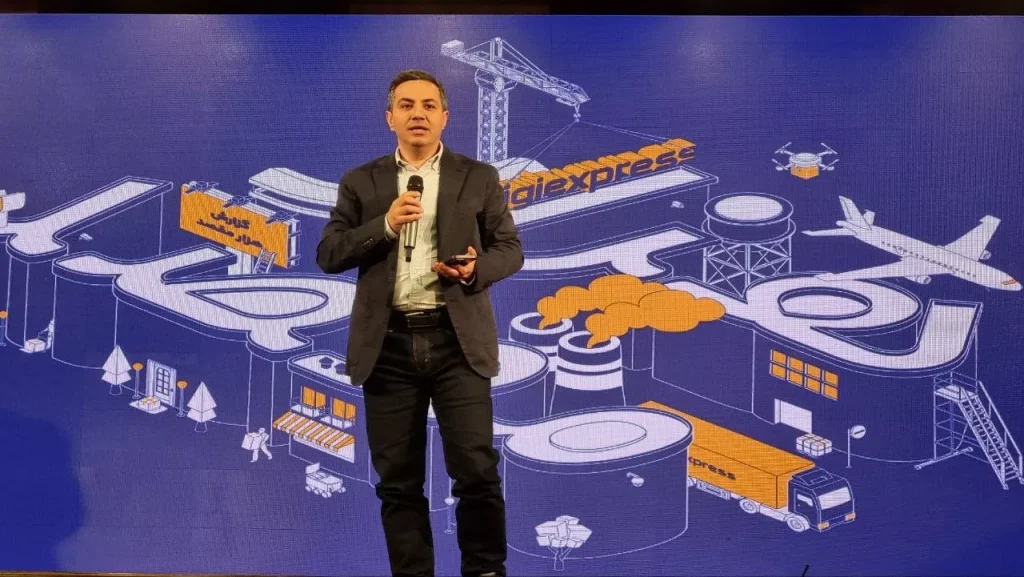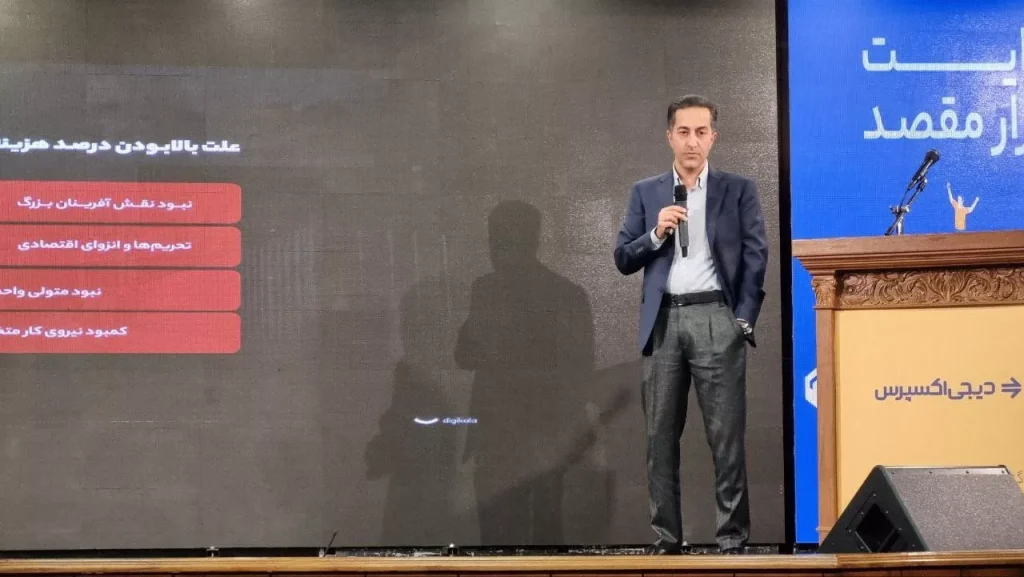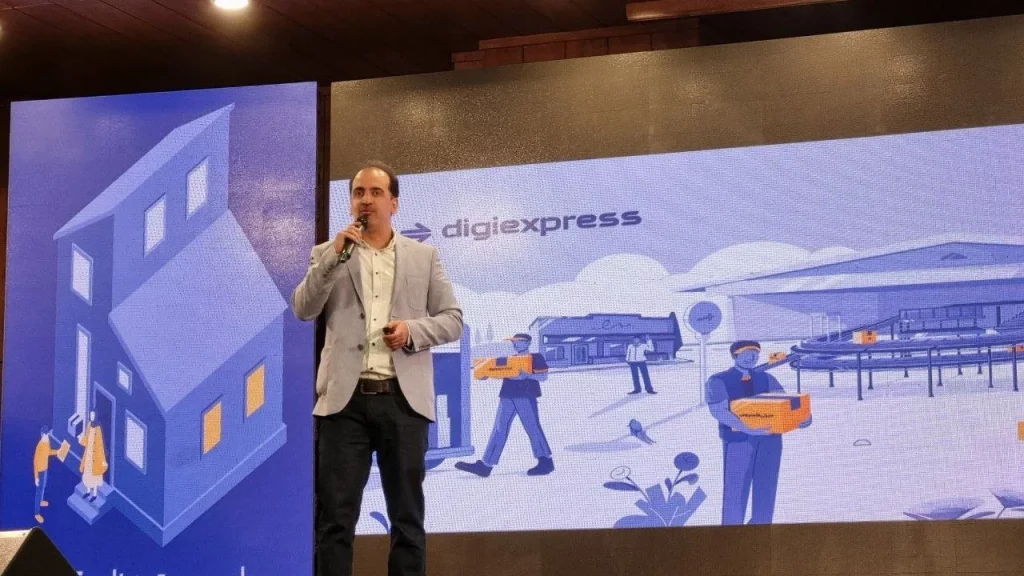Last year, “Digiexpress” delivered more than 30 million packages to 2,260 urban and rural locations. According to the report published by Digikala’s logistics arm, 600 million packages are distributed in Iran every year.
According to Iran digital economy annotation, the annual report of Digiexpress titled “2023 Thousand Destinations” was unveiled. This company announced that last year it delivered 100% of the packages it delivered on time.
The package sending record was recorded on the 28th of November by sending 150,000 packages, which may be related to Black Friday orders. The last month of the year, March, was also the busiest month, where 3 million packages were sent.
Digiexpress has 78 operating centers in the country, which have a total area of 38 thousand square meters.
Last year, around 8,500 drivers delivered packages to their destination. Some interesting records can be seen among these drivers. One of the drivers delivered 26,000 packages in the scheduled delivery service and another driver managed to deliver more than 11,000 packages in the immediate delivery service. Also, the highest paid driver earned $7000 in one year.
Almost half of the Digiexpress market is concentrated in Tehran and Alborz provinces: 42% in Tehran and 6% in Alborz. Isfahan province is in the next place with a share of 5%.
CEO of Digikala Group: 50 cents is not enough
Saeid Mohammadi, the CEO of Digikala e-commerce group, spoke about the importance of logistics at the launch of the Digiexpress annual report and said: “Fintech, martech, cloud and logistics are the four main pillars of the e-commerce industry; That’s why the field of logistics in Digikala has always been important to us. The further we went in Digikala, we faced new logistics experiences. For example, every product group that was added, there is a serious issue regarding logistics. When we became Market Place, we also did a logistics redesign. When Quick Commerce was introduced, the customer expected to receive the product in 30 minutes. All this made logistics become a complex issue in the Digikala group, which required a new look; That’s why Digiexpress became an independent business.”
He also said: “If the logistics infrastructure is developed in the country, it will lead to the long-term and sustainable development of the entire e-commerce industry.” I hope that Iran’s e-commerce growth will continue in the past few years and reach a global position.”
In another part of his talk about logistics costs in Iran, the CEO of Digikala Group said: “Despite challenges such as energy imbalance and lack of manpower, there is a need for a fundamental transformation in the field of logistics to improve productivity.” This event requires solutions such as intelligentization. Price correction is also important. “Nowhere in the world is it possible to provide a service at a cost of 50 cents.”
CEO of Digikala: Companies have no incentive to innovate
Masoud Tabatabai, CEO of Digikala, also said in this event: “We offer about 3.5 days to deliver the order to the customer. They range from daily orders to orders that are delivered in faraway cities and villages.”
The CEO of Digikala also explained about the lack of motivation of companies to innovate in the field of logistics: “In the future, the field of logistics will become very important in the whole country. “All companies will be forced to use technology in this sector to make serious optimizations, but as long as the share of fuel costs in the total costs is not very visible, the resulting innovation and optimization will not happen.”
Digikala Operations Manager: Logistics wants a big player
“Ali Marzban”, the operation manager of Digikala, was also another speaker who explained the state of this industry in the country during a presentation. Marzban said: “In developed countries, logistics costs account for 8 to 10 percent of GDP. In developing countries, this ratio is 12 to 20 percent. In Iran, it is between 15 and 16 percent. “At first glance, it’s not too bad, but when we look at the low price of energy carriers in Iran, we realize that this ratio is not good and the main number is higher than these.”
He emphasized the importance of economies of scale in this industry and said: “We have a lot of small players in this industry. A large number of vehicles such as trucks, vans and motorcycles in the city move packages, but if you open the cargo compartment of each one, you will see that at last 40% of it is occupied, or as they say, they are carrying air. The reason is that we don’t believe in big players in this industry.”
Marzban also said about the lack of a single legislator in this industry: “The Ministries of Safety, Health, Roads and Urban Development and Economy, each of them imposes the laws of this field on the organizations. While logistics accounts for this part of GDP, it needs a ministry or at least an independent trustee.
Digikala’s operations manager pointed to the lack of skilled labor, dilapidated infrastructure, and sanctions and economic isolation as other problems in the industry.
“Alishad Etezadi”, the CEO of Digiexpress, also said: “In 2022, the logistics department of Digikala was transferred to Digiexpress as an independent group. This issue had many challenges, including the transfer of 1,500 human resources to another group and issues related to the employer brand.
Etezadi added: “Now 5 thousand users in Tehran use Digiexpress daily. Also, 10% of orders are delivered the same day.”
The CEO of Digiexpress also said: “Today, 5 thousand users in Tehran use Digiexpress, and 10% of orders in Tehran and Karaj are delivered in a day.” Also, Digiexpress has delivered 94% of the orders to the customers on time, covering more than 2,000 cities and villages.








No Comment! Be the first one.